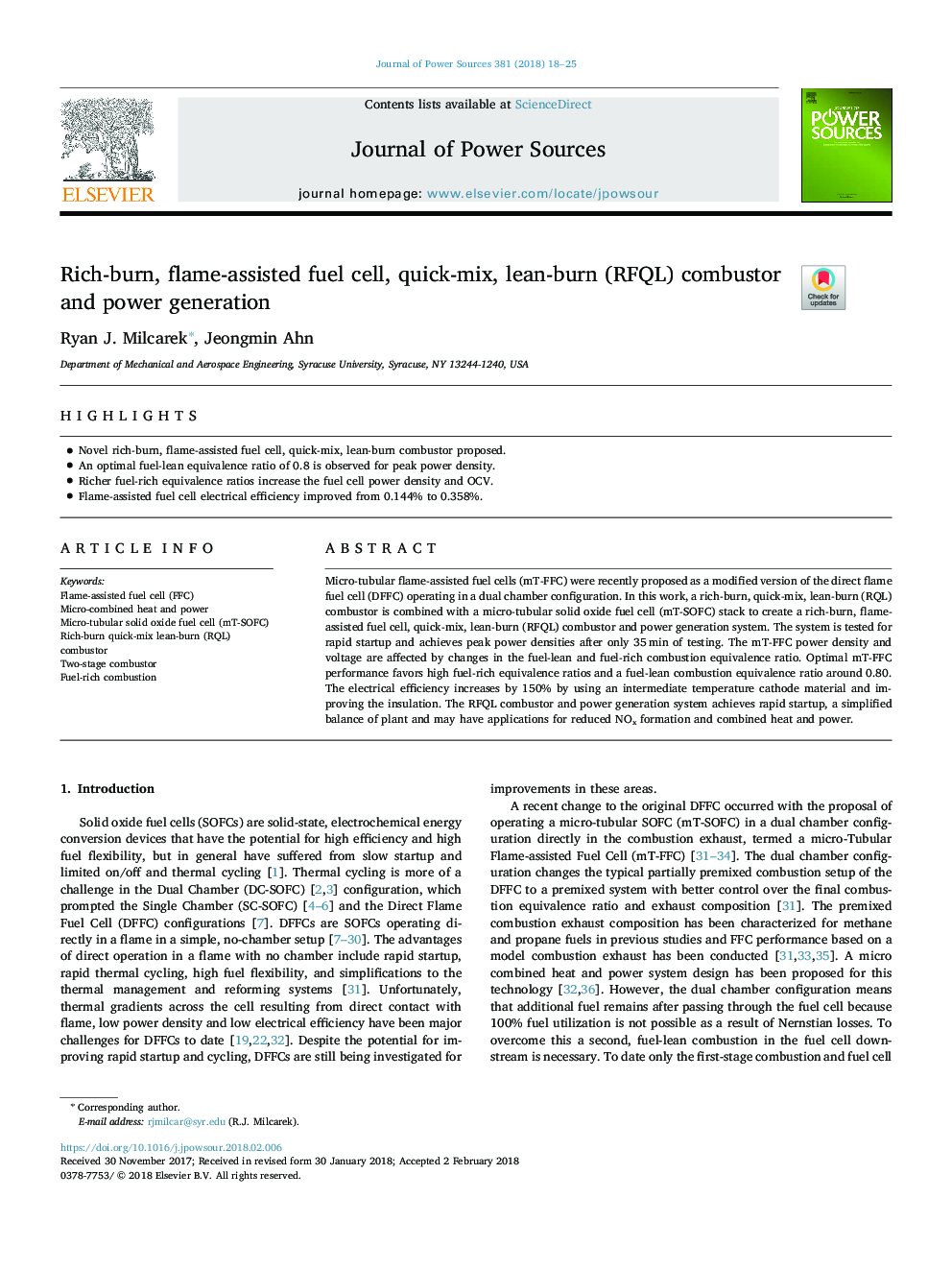| Article ID | Journal | Published Year | Pages | File Type |
|---|---|---|---|---|
| 7725610 | Journal of Power Sources | 2018 | 8 Pages |
Abstract
Micro-tubular flame-assisted fuel cells (mT-FFC) were recently proposed as a modified version of the direct flame fuel cell (DFFC) operating in a dual chamber configuration. In this work, a rich-burn, quick-mix, lean-burn (RQL) combustor is combined with a micro-tubular solid oxide fuel cell (mT-SOFC) stack to create a rich-burn, flame-assisted fuel cell, quick-mix, lean-burn (RFQL) combustor and power generation system. The system is tested for rapid startup and achieves peak power densities after only 35â¯min of testing. The mT-FFC power density and voltage are affected by changes in the fuel-lean and fuel-rich combustion equivalence ratio. Optimal mT-FFC performance favors high fuel-rich equivalence ratios and a fuel-lean combustion equivalence ratio around 0.80. The electrical efficiency increases by 150% by using an intermediate temperature cathode material and improving the insulation. The RFQL combustor and power generation system achieves rapid startup, a simplified balance of plant and may have applications for reduced NOx formation and combined heat and power.
Related Topics
Physical Sciences and Engineering
Chemistry
Electrochemistry
Authors
Ryan J. Milcarek, Jeongmin Ahn,
